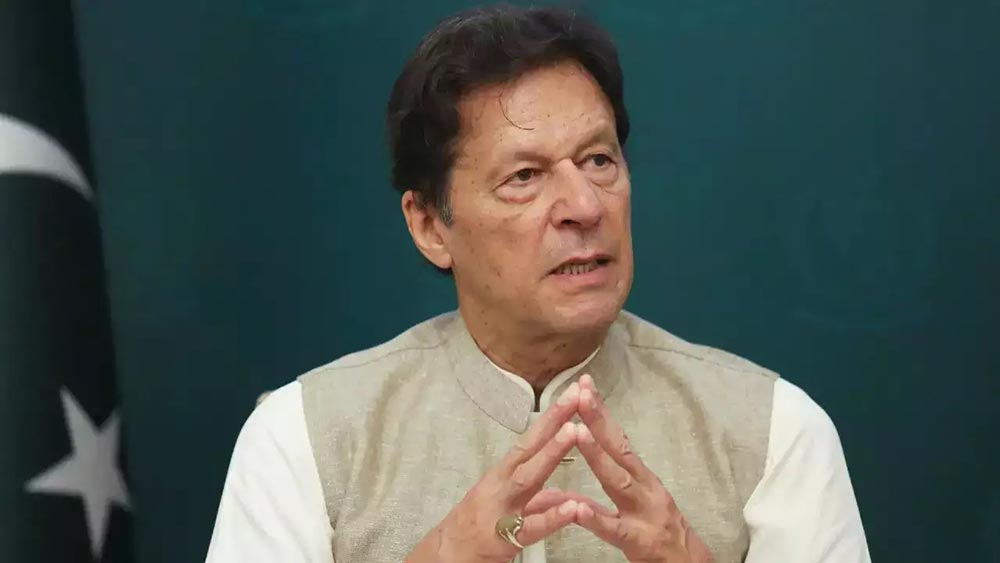Imran Khan, the imprisoned founder of Pakistan Tehreek-e-Insaf (PTI), who attributes his removal from office and subsequent 12-month imprisonment to alleged false charges and military interference, has stated that it would be “foolish” not to maintain strong relations with the army.
As the anniversary of his incarceration approaches, Khan reiterated in written responses to Reuters that he harbors no animosity towards the United States, despite blaming it for his 2022 removal from office. Khan emphasized that given Pakistan’s strategic position and the military’s significant involvement in the private sector, fostering a good relationship with the army is essential.
“We are proud of our soldiers and armed forces,” Khan noted, adding that his criticisms have been directed at individuals rather than the military institution as a whole. He suggested that the mistakes of military leadership should not reflect poorly on the institution itself.
On Wednesday, Imran Khan proposed “conditional negotiations” with the military, contingent upon the holding of “clean and transparent” elections and the dismissal of what he calls “bogus” cases against his supporters. However, both the army and government have not yet responded to these comments, and they have repeatedly denied his accusations. The United States also denies involvement in his ouster.
Khan, who lost power through a parliamentary no-confidence vote, accuses the military of supporting politically motivated cases against him, a claim the military denies. Despite this, he expressed willingness to engage with the establishment if he is released from prison and seeks to return to power.
He emphasized that any dialogue would be more productive with those who actually wield power, rather than the current coalition government led by Prime Minister Shehbaz Sharif, which Khan argues lacks public support due to what he claims was a rigged election in February.
Khan’s imprisonment has intensified political instability in Pakistan, exacerbating the country’s economic crisis. Last month, Pakistan received a bailout from the International Monetary Fund (IMF), which has imposed stringent fiscal consolidation measures that have increased the tax burden on citizens. Analysts suggest that political instability has played a role in forcing Islamabad to accept these measures.
The IMF has called for political stability to support the recovery of Pakistan’s $350 billion economy. Khan, however, has rejected any out-of-court settlement unless it is acknowledged that his PTI party won a majority in the disputed February election, describing the elections as the “most rigged in Pakistan’s history.”










